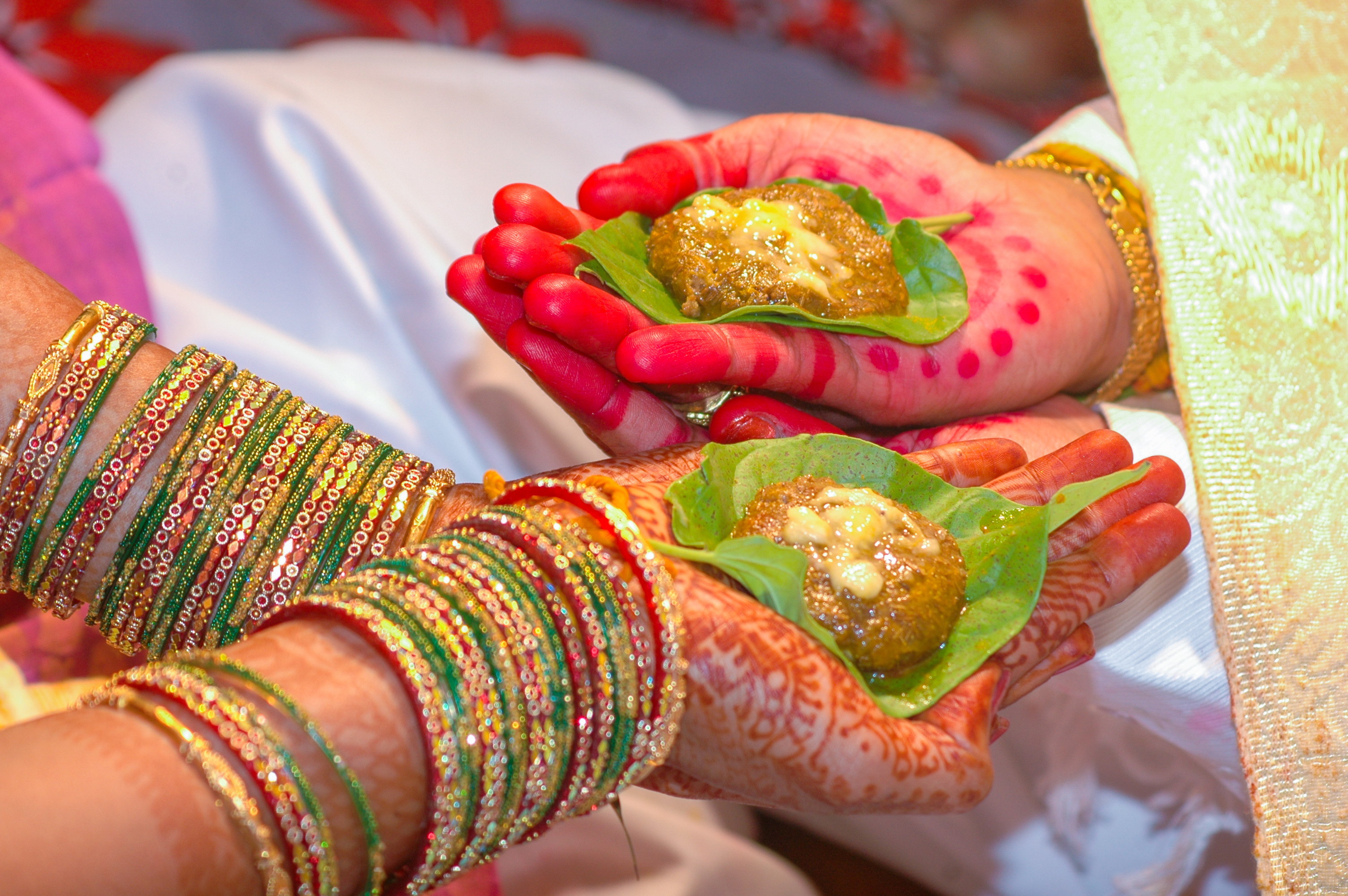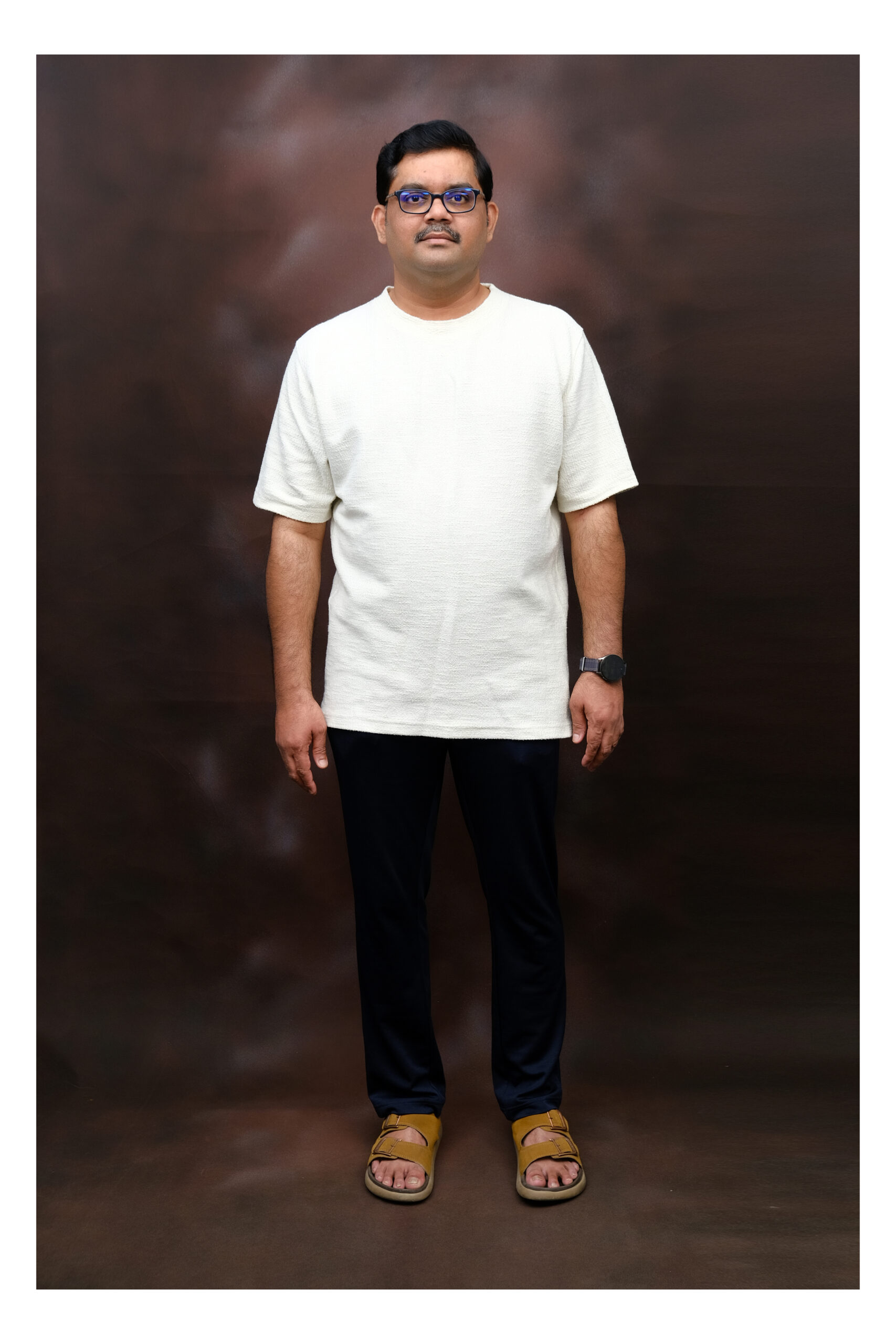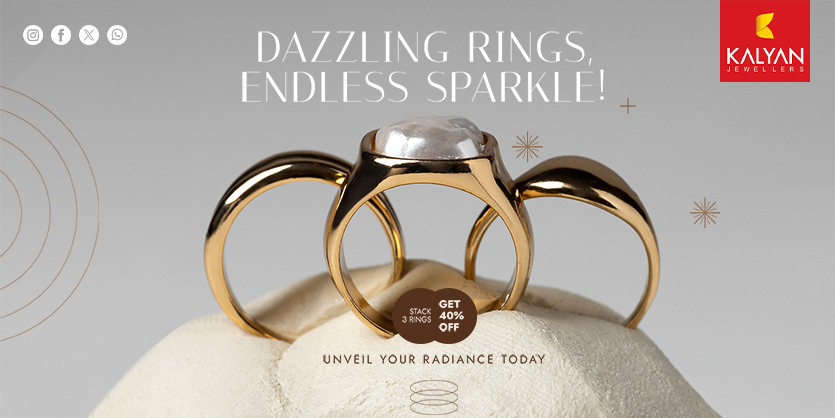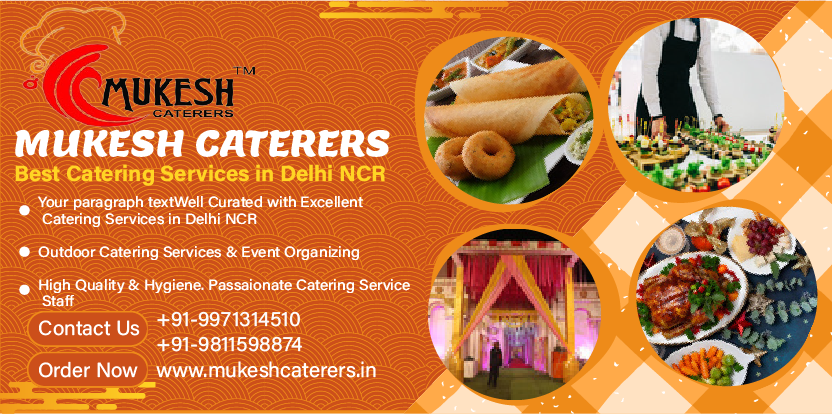 Languages
Languages
- Assamese Brides
- Assamese Grooms
- Assamese Matrimony
- Bengali Brides
- Bengali Grooms
- Bengali Matrimony
- Gujarati Brides
- Gujarati Grooms
- Gujarati Matrimony
- Hindi Brides
- Hindi Grooms
- Hindi Matrimony
- Kankani Brides
- Kankani Grooms
- Kankani Matrimony
- Kannada Brides
- Kannada Grooms
- Kannada Matrimony
- Kerala Matrimony
- Malayalam Brides
- Malayalam Grooms
- Marathi Matrimony
- Marwadi Matrimony
- Oriya Matrimony
- Parsi Matrimony
- Punjabi Matrimony
- Sindhi Matrimony
- Tamil Matrimony
- Telugu Matrimony
- Urdu Matrimony
 City
City
- Bangalore Brides
- Bangalore Grooms
- Bangalore Matrimony
- Calcutta Brides
- Calcutta Grooms
- Calcutta Matrimony
- Chennai Brides
- Chennai Grooms
- Chennai Matrimony
- Delhi Brides
- Delhi Grooms
- Delhi Matrimony
- Delhi Matrimony and Indian Climate
- Hyderabad Brides
- Hyderabad Grooms
- Hyderabad Matrimony
- Mumbai Brides
- Mumbai Grooms
- Mumbai Matrimony
- Pune Brides
- Pune Grooms
- Pune Matrimony
 State
State
- Andhra Pradesh Brides
- Andhra Pradesh Grooms
- Andhra Pradesh Matrimony
- Arunachal Pradesh Brides
- Arunachal Pradesh Grooms
- Arunachal Pradesh Matrimony
- Assam Brides
- Assam Grooms
- Assam Matrimony
- Bihar Brides
- Bihar Grooms
- Bihar Matrimony
- Chhattisgarh Brides
- Chhattisgarh Grooms
- Chhattisgarh Matrimony
- Goa Brides
- Goa Grooms
- Goa Matrimony
- Gujarat Brides
- Gujarat Grooms
- Kerala Brides
- Kerala Grooms
- Maharashtra Matrimony
- Odisha Matrimony
- Rajasthan Matrimony
- Tamil Nadu Matrimony
- Tripura Matrimony
 Religion
Religion
- Buddhist Brides
- Buddhist Grooms
- Buddhist Matrimony
- Christian Brides
- Christian Grooms
- Christian Matrimony
- Christian Matrimony India
- Hindu Brides
- Hindu Grooms
- Hindu Matrimony
- Jain Brides
- Jain Grooms
- Jain Matrimony
- Jewish Brides
- Jewish Grooms
- Jewish Matrimony
- Muslim Brides
- Muslim Grooms
- Muslim Matrimony
- Muslim Matrimony, Find Muslim Grooms and Bride for Merriage at Free Indian Matrimony
- No Religion Brides
- No Religion Grooms
- No Religion Matrimony
- Other Brides
- Other Grooms
- Other Matrimony
- Parsi Brides
- Parsi Grooms
- Parsi Matrimony
- Sikh Brides
- Sikh Grooms
- Sikh Matrimony
- Spiritual Brides
- Spiritual Grooms
- Spiritual Matrimony
 Caste
Caste
- Ad Dharmi Brides
- Ad Dharmi Grooms
- Ad Dharmi Matrimony
- Adi Dravida Brides
- Adi Dravida Grooms
- Adi Dravida Matrimony
- Adri Matrimony
- Agarwal Brides
- Agarwal Grooms
- Agarwal Matrimony
- Agnikula Kshatriya Brides
- Agnikula Kshatriya Grooms
- Agnikula Kshatriya Matrimony
- Agri Brides
- Agri Grooms
- Agri Grooms
- Agri Grooms
- Agri Grooms
- Agri Matrimony
- Ahom Grooms
- Ahom Matrimony
- Arora Matrimony
- Arunthathiyar Bride
- Arunthathiyar Matrimony
- Arya Vysya Brides
- Arya Vysya Grooms
- Arya Vysya Matrimony
- Baishya Matrimony
- Balija Brides
- Balija Matrimony
- Banik Matrimony
- Baniya Matrimony
- Barujibi Matrimony
- Besta brides
- Bhandari Brides
- Bhandari Matrimony
- Bhatia Matrimony
- Bhavasar Kshatriya Brides
- Bhavasar Kshatriya Grooms
- Bhovi Brides
- Bhovi Grooms
- Billava Brides
- Billava Matrimony
- Billavas Grooms
- Brahmin Brides
- Brahmin Grooms
- Brahmin Iyer brides
- Brahmin Matrimony, Brahmin Matrimonials Website in India
- CKP Brides
- CKP Grooms
- CKP Matrimony
- Caste No Bar Brides
- Caste No Bar Grooms
- Caste No Bar Matrimony
- Chamar Brides
- Chamar Matrimony
- Chambhar Brides
- Chambhar Matrimony
- Chandravanshi Kahar Brides
- Chandravanshi Kahar matrimony
- Chasa Matrimony
- Chaurasia Brides
- Chaurasia Matrimony
- Chettiar Brides
- Chettiar Matrimony
- Chhetri matrimony
- Coorgi Brides
- Coorgi Grooms
- Devadiga Brides
- Devandra Kula Vellalar Brides
- Devanga Brides
- Devanga Matrimony
- Dhangar Grooms
- Dhangar Matrimony
- Dheevara Matrimony
- Dheevera Brides
- Dhiman Matrimony
- Dhoba Matrimony
- Dhobi Brides
- Dhobi Matrimony
- Ediga Brides
- Ediga grooms
- Ezhava Grooms
- Ezhava Matrimony
- Ezhuthachan Brides
- Gabit Brides
- Gandla Brides
- Gandla grooms
- Ganiga Brides
- Garhwali Brides
- Garhwali Grooms
- Ghumar Matrimony
- Goan Brides
- Goan Matrimony
- Goud Brides
- Goud Matrimony
- Gounder Brides
- Gounder Matrimony
- Gowda Brides
- Gowda Matrimony
- Gudia Matrimony
- Gupta Brides
- Hyderabad Brides
- Inter Caste Brides
- Intercaste Matrimony
- Irani Brides
- Jaiswal Brides
- Jaiswal Matrimony
- Jangam Matrimony
- Jangram Grooms
- Jat Grooms
- Jat Matrimony
- Jat brides
- Jharkhand Matrimony
- KARNATAKA BRIDES
- Kalinga Matrimony
- Kalita Matrimony
- Kalwar Matrimony
- Kamboj Brides
- Kamboj Matrimony
- Kamma Grooms
- Kamma Matrimony
- Kansari Matrimony
- Kapu Brides
- Kapu Matrimony
- Karana Brides
- Karmakar Matrimony
- Karuneegar Matrimony
- Kashyap Matrimony
- Kayastha Matrimony
- Khandayat Matrimony
- Khandelwal Matrimony
- Khatri Matrimony
- Koli Brides
- Kongu Vellala Gounder Grooms
- Kongu Vellala Gounder Matrimony
- Konkani Brides
- Kshatriya Brides
- Kshatriya Matrimony
- Kudumbi Brides
- Kudumbi Grooms
- Kulal Brides
- Kulal Matrimony
- Kulalar Brides
- Kulalar Matrimony
- Kulita Matrimony
- Kumbhakar Matrimony
- Kumbhar Brides
- Kummari Brides
- Kunbi Matrimony
- Kuruba Grooms
- Kuruba Matrimony
- Kuruhna Shetty Matrimony
- Kuruhuna Shetty Grooms
- Lambadi Matrimony
- Leva Patel Brides
- Lingayath Brides
- Lingayath Matrimony
- Lohana Matrimony
- Lubana Matrimony
- Madiga Matrimony
- Madiga brides
- Mahajan Matrimony
- Mahendra Matrimony
- Maheshwari Brides
- Maheshwari Grooms
- Maheshwari Matrimony
- Mahishya Matrimony
- Mala Brides
- Mala Matrimony
- Mali Brides
- Mali Matrimony
- Mannuru Kapu Brides
- Mappila Matrimony
- Maratha Grooms
- Maratha Matrimony
- Maruthuvar Brides
- Maruthuvar Matrimony
- Matang Brides
- Matang Matrimony
- Meena Brides
- Mehra Matrimony
- Meru Darji Matrimony
- Mochi Matrimony
- Mogaveera Grooms
- Mudaliyar Matrimony
- Mudiraj Matrimony
- Munnuru Kapu Matrimony
- Muthuraja Brides
- Muthuraja Matrimony
- Nadar Grooms
- Nadar Matrimony
- Nai Brides
- Nai Matrimony
- Naidu Brides
- Naidu Matrimony
- Naik Brides
- Nair Grooms
- Nair Matrimony
- Nayaka Brides
- Nhavi Brides
- Padmasali Brides
- Padmasali Matrimony
- Pal Matrimony
- Panicker Matrimony
- Parkava Kulam Matrimony
- Parsi Brides
- Pasi Brides
- Patel Matrimony
- Patnaick Matrimony
- Pillai Brides
- Pillai Matrimony
- Prajapati Brides
- Prajapati Matrimony
- Rajaka Grooms
- Rajput Grooms
- Rajput Matrimony
- Ramdasia Matrimony
- Ravidasia Matrimony
- Reddy Matrimony
- Reddy brides
- SC Brides
- SC Matrimony
- ST Brides
- Sadgope Matrimony
- Saini Brides
- Saini Matrimony
- Saliya Matrimony
- Settibalija Brides
- Shetty Brides
- Shetty Matrimony
- Shimpi brides
- Sindhi Grooms
- Sonar Matrimony
- Soni Matrimony
- Sourashtra Matrimony
- Sundhi Matrimony
- Tamboli Matrimony
- Tanti Matrimony
- Teli Matrimony
- Thakur Matrimony
- Thigala Matrimony
- Thigala brides
- Thiyya Brides
- Thiyya Matrimony
- Tili matrimony
- Uppara Brides
- Vaddera Brides
- Vaishnav Matrimony
- Vaishnava Matrimony
- Vaishya Matrimony
- Vaishya Vani Grooms
- Valmiki Matrimony
- Valmiki brides
- Vaniya Matrimony
- Vaniya Matrimony
- Vaniya Matrimony
- Vaniya Matrimony
- Vanjari Grooms
- Vanjari Matrimony
- Vannar Brides
- Vannar Matrimony
- Vannia Kula Kshatriyar Matrimony
- Veerasaivam matrimony
- Vellalar Matrimony
- Veluthedathu Nair Brides
- Veluthedathu Nair Matrimony
- Vilakkithala Nair Brides
- Viswabrahmin Grooms
- Viswabrahmin Matrimony
- Viswakarma Matrimony
- Vokkaliga Matrimony
- Yadav Grooms
- Yadav Matrimony
 City
City
- Bangalore Brides
- Bangalore Grooms
- Bangalore Matrimony
- Calcutta Brides
- Calcutta Grooms
- Calcutta Matrimony
- Chennai Brides
- Chennai Grooms
- Chennai Matrimony
- Delhi Brides
- Delhi Grooms
- Delhi Matrimony
- Delhi Matrimony and Indian Climate
- Hyderabad Brides
- Hyderabad Grooms
- Hyderabad Matrimony
- Mumbai Brides
- Mumbai Grooms
- Mumbai Matrimony
- Pune Brides
- Pune Grooms
- Pune Matrimony
 Languages
Languages
- Assamese Brides
- Assamese Grooms
- Assamese Matrimony
- Bengali Brides
- Bengali Grooms
- Bengali Matrimony
- Gujarati Brides
- Gujarati Grooms
- Gujarati Matrimony
- Hindi Brides
- Hindi Grooms
- Hindi Matrimony
- Kankani Brides
- Kankani Grooms
- Kankani Matrimony
- Kannada Brides
- Kannada Grooms
- Kannada Matrimony
- Kerala Matrimony
- Malayalam Brides
- Malayalam Grooms
- Marathi Matrimony
- Marwadi Matrimony
- Oriya Matrimony
- Parsi Matrimony
- Punjabi Matrimony
- Sindhi Matrimony
- Tamil Matrimony
- Telugu Matrimony
- Urdu Matrimony
 State
State
- Andhra Pradesh Brides
- Andhra Pradesh Grooms
- Andhra Pradesh Matrimony
- Arunachal Pradesh Brides
- Arunachal Pradesh Grooms
- Arunachal Pradesh Matrimony
- Assam Brides
- Assam Grooms
- Assam Matrimony
- Bihar Brides
- Bihar Grooms
- Bihar Matrimony
- Chhattisgarh Brides
- Chhattisgarh Grooms
- Chhattisgarh Matrimony
- Goa Brides
- Goa Grooms
- Goa Matrimony
- Gujarat Brides
- Gujarat Grooms
- Kerala Brides
- Kerala Grooms
- Maharashtra Matrimony
- Odisha Matrimony
- Rajasthan Matrimony
- Tamil Nadu Matrimony
- Tripura Matrimony
 Religion
Religion
- Buddhist Brides
- Buddhist Grooms
- Buddhist Matrimony
- Christian Brides
- Christian Grooms
- Christian Matrimony
- Christian Matrimony India
- Hindu Brides
- Hindu Grooms
- Hindu Matrimony
- Jain Brides
- Jain Grooms
- Jain Matrimony
- Jewish Brides
- Jewish Grooms
- Jewish Matrimony
- Muslim Brides
- Muslim Grooms
- Muslim Matrimony
- Muslim Matrimony, Find Muslim Grooms and Bride for Merriage at Free Indian Matrimony
- No Religion Brides
- No Religion Grooms
- No Religion Matrimony
- Other Brides
- Other Grooms
- Other Matrimony
- Parsi Brides
- Parsi Grooms
- Parsi Matrimony
- Sikh Brides
- Sikh Grooms
- Sikh Matrimony
- Spiritual Brides
- Spiritual Grooms
- Spiritual Matrimony
 Caste
Caste
- Ad Dharmi Brides
- Ad Dharmi Grooms
- Ad Dharmi Matrimony
- Adi Dravida Brides
- Adi Dravida Grooms
- Adi Dravida Matrimony
- Adri Matrimony
- Agarwal Brides
- Agarwal Grooms
- Agarwal Matrimony
- Agnikula Kshatriya Brides
- Agnikula Kshatriya Grooms
- Agnikula Kshatriya Matrimony
- Agri Brides
- Agri Grooms
- Agri Grooms
- Agri Grooms
- Agri Grooms
- Agri Matrimony
- Ahom Grooms
- Ahom Matrimony
- Arora Matrimony
- Arunthathiyar Bride
- Arunthathiyar Matrimony
- Arya Vysya Brides
- Arya Vysya Grooms
- Arya Vysya Matrimony
- Baishya Matrimony
- Balija Brides
- Balija Matrimony
- Banik Matrimony
- Baniya Matrimony
- Barujibi Matrimony
- Besta brides
- Bhandari Brides
- Bhandari Matrimony
- Bhatia Matrimony
- Bhavasar Kshatriya Brides
- Bhavasar Kshatriya Grooms
- Bhovi Brides
- Bhovi Grooms
- Billava Brides
- Billava Matrimony
- Billavas Grooms
- Brahmin Brides
- Brahmin Grooms
- Brahmin Iyer brides
- Brahmin Matrimony, Brahmin Matrimonials Website in India
- CKP Brides
- CKP Grooms
- CKP Matrimony
- Caste No Bar Brides
- Caste No Bar Grooms
- Caste No Bar Matrimony
- Chamar Brides
- Chamar Matrimony
- Chambhar Brides
- Chambhar Matrimony
- Chandravanshi Kahar Brides
- Chandravanshi Kahar matrimony
- Chasa Matrimony
- Chaurasia Brides
- Chaurasia Matrimony
- Chettiar Brides
- Chettiar Matrimony
- Chhetri matrimony
- Coorgi Brides
- Coorgi Grooms
- Devadiga Brides
- Devandra Kula Vellalar Brides
- Devanga Brides
- Devanga Matrimony
- Dhangar Grooms
- Dhangar Matrimony
- Dheevara Matrimony
- Dheevera Brides
- Dhiman Matrimony
- Dhoba Matrimony
- Dhobi Brides
- Dhobi Matrimony
- Ediga Brides
- Ediga grooms
- Ezhava Grooms
- Ezhava Matrimony
- Ezhuthachan Brides
- Gabit Brides
- Gandla Brides
- Gandla grooms
- Ganiga Brides
- Garhwali Brides
- Garhwali Grooms
- Ghumar Matrimony
- Goan Brides
- Goan Matrimony
- Goud Brides
- Goud Matrimony
- Gounder Brides
- Gounder Matrimony
- Gowda Brides
- Gowda Matrimony
- Gudia Matrimony
- Gupta Brides
- Hyderabad Brides
- Inter Caste Brides
- Intercaste Matrimony
- Irani Brides
- Jaiswal Brides
- Jaiswal Matrimony
- Jangam Matrimony
- Jangram Grooms
- Jat Grooms
- Jat Matrimony
- Jat brides
- Jharkhand Matrimony
- KARNATAKA BRIDES
- Kalinga Matrimony
- Kalita Matrimony
- Kalwar Matrimony
- Kamboj Brides
- Kamboj Matrimony
- Kamma Grooms
- Kamma Matrimony
- Kansari Matrimony
- Kapu Brides
- Kapu Matrimony
- Karana Brides
- Karmakar Matrimony
- Karuneegar Matrimony
- Kashyap Matrimony
- Kayastha Matrimony
- Khandayat Matrimony
- Khandelwal Matrimony
- Khatri Matrimony
- Koli Brides
- Kongu Vellala Gounder Grooms
- Kongu Vellala Gounder Matrimony
- Konkani Brides
- Kshatriya Brides
- Kshatriya Matrimony
- Kudumbi Brides
- Kudumbi Grooms
- Kulal Brides
- Kulal Matrimony
- Kulalar Brides
- Kulalar Matrimony
- Kulita Matrimony
- Kumbhakar Matrimony
- Kumbhar Brides
- Kummari Brides
- Kunbi Matrimony
- Kuruba Grooms
- Kuruba Matrimony
- Kuruhna Shetty Matrimony
- Kuruhuna Shetty Grooms
- Lambadi Matrimony
- Leva Patel Brides
- Lingayath Brides
- Lingayath Matrimony
- Lohana Matrimony
- Lubana Matrimony
- Madiga Matrimony
- Madiga brides
- Mahajan Matrimony
- Mahendra Matrimony
- Maheshwari Brides
- Maheshwari Grooms
- Maheshwari Matrimony
- Mahishya Matrimony
- Mala Brides
- Mala Matrimony
- Mali Brides
- Mali Matrimony
- Mannuru Kapu Brides
- Mappila Matrimony
- Maratha Grooms
- Maratha Matrimony
- Maruthuvar Brides
- Maruthuvar Matrimony
- Matang Brides
- Matang Matrimony
- Meena Brides
- Mehra Matrimony
- Meru Darji Matrimony
- Mochi Matrimony
- Mogaveera Grooms
- Mudaliyar Matrimony
- Mudiraj Matrimony
- Munnuru Kapu Matrimony
- Muthuraja Brides
- Muthuraja Matrimony
- Nadar Grooms
- Nadar Matrimony
- Nai Brides
- Nai Matrimony
- Naidu Brides
- Naidu Matrimony
- Naik Brides
- Nair Grooms
- Nair Matrimony
- Nayaka Brides
- Nhavi Brides
- Padmasali Brides
- Padmasali Matrimony
- Pal Matrimony
- Panicker Matrimony
- Parkava Kulam Matrimony
- Parsi Brides
- Pasi Brides
- Patel Matrimony
- Patnaick Matrimony
- Pillai Brides
- Pillai Matrimony
- Prajapati Brides
- Prajapati Matrimony
- Rajaka Grooms
- Rajput Grooms
- Rajput Matrimony
- Ramdasia Matrimony
- Ravidasia Matrimony
- Reddy Matrimony
- Reddy brides
- SC Brides
- SC Matrimony
- ST Brides
- Sadgope Matrimony
- Saini Brides
- Saini Matrimony
- Saliya Matrimony
- Settibalija Brides
- Shetty Brides
- Shetty Matrimony
- Shimpi brides
- Sindhi Grooms
- Sonar Matrimony
- Soni Matrimony
- Sourashtra Matrimony
- Sundhi Matrimony
- Tamboli Matrimony
- Tanti Matrimony
- Teli Matrimony
- Thakur Matrimony
- Thigala Matrimony
- Thigala brides
- Thiyya Brides
- Thiyya Matrimony
- Tili matrimony
- Uppara Brides
- Vaddera Brides
- Vaishnav Matrimony
- Vaishnava Matrimony
- Vaishya Matrimony
- Vaishya Vani Grooms
- Valmiki Matrimony
- Valmiki brides
- Vaniya Matrimony
- Vaniya Matrimony
- Vaniya Matrimony
- Vaniya Matrimony
- Vanjari Grooms
- Vanjari Matrimony
- Vannar Brides
- Vannar Matrimony
- Vannia Kula Kshatriyar Matrimony
- Veerasaivam matrimony
- Vellalar Matrimony
- Veluthedathu Nair Brides
- Veluthedathu Nair Matrimony
- Vilakkithala Nair Brides
- Viswabrahmin Grooms
- Viswabrahmin Matrimony
- Viswakarma Matrimony
- Vokkaliga Matrimony
- Yadav Grooms
- Yadav Matrimony
Spiritual Union of the Bridal Couples in Andhra Pradesh and Telangana
Telugu marriages have their own unique styles and they have a distinct set of rituals that are performed with discipline and sophistication. Among the Telugu people, a marriage ceremony is considered a soulful event. Marriages are celebrated by the concerned families with enjoyment and charm and the charisma comes out, reflected in every ritual and moment, regardless of whether it is the dress of the bride that is chosen or the style and attire of the groom.
The Telugus are people who live in Andhra Pradesh and Telangana States. They have a heritage that is steeped in rich culture. Telugu is a Dravidian language and is the third most spoken medium of language in India. The Telugus have a charming style about everything that they own and their styles are unmatched by others in the country. This is reflected in the type of dance, art, music and culture exhibited by the Hindu, Muslim and Christian communities within these states
For the purpose of this article, the traditional Telugu wedding rituals will be covered for Hindu, Muslim and Christian communities.
Telugu Hindu Marriage Customs
A Telugu Hindu marriage is a traditional wedding ceremony that involves a whole series of customs and rituals which are performed over a span of five days or more. Around the nineteenth century, the wedding ceremonies among the Telugu Hindu communities lasted up to a period of sixteen days and the celebration was known as `padaharu rojula panduga’. These sophisticated Telugu Hindu weddings were always supported with the ancient age-old traditions and customs which are followed even among many people today. There is a strong resemblance between the customs and traditions followed by the Telugus and the Tamils as far as marriage rituals are concerned. As in the Tamil traditions, a Telugu Hindu marriage is recognised as the strongest bond or social union among two families and not just among the bridal couple. There is a famous old Telugu poem which quotes that marriage is meant to be a union of the families and not just an individual formality.
Pre-Wedding Rituals- Matchmaking – In a Hindu Telugu matrimonial function, matchmaking is the first major step taken by the families of the bride and the groom. A Telugu marriage is not considered a love union between the couple; it is not a love marriage as the Telugus believe in endogamy and to this end, they undertake certain calculations concerning astrological Telugu matchmaking. This is done to check the compatibility between the bride and the groom. Therefore, the wedding is fixed by both the families after deliberation and astrological matching that is referred to as guna milap or Ashtakoot Milan. Vedic astrology is firmly believed to be a proven and an accurate method of horoscope matchmaking in the world of Telugu matrimony. This matchmaking has its foundation in the lunar constellations or the nakshatras. This is also known as the kundali matchmaking technique where points are obtained for all factors which influence the wedding. The higher the number of points gathered in the matchmaking tally, the more successful the union would turn out to be for the bridal couple. This method is also checked and dallied with in order to assess the compatibility of the bride and the groom. Once the families are satisfied with the matchmaking tally, the date of the marriage is fixed. The Hindu Telugu marriage ceremony is quite an elaborate affair.
- Muhurtham – This is a pre-wedding ceremony that fixes an auspicious period of a particular day for the marriage. In Telugu marriages, the evening hour period between 1900 and 2300 is mostly auspicious.
- Nischitartham – This is the ceremony of engagement where the date of the marriage gets officially announced. It is a function that represents much more than a mere exchange of rings. It is a grand ritual where both the families will get together and plan out a date for the wedding along with the opportune time under the guidance of family astrologers. The decision is taken based on planetary positions and horoscopes. Gifts are exchanged between the families and the bride is presented with jewellery, clothes and silverware.
- Pellikuthuru – This particular ritual marks the beginning of the preparations for the actual wedding where the groom and the bride get ready to look their best on their big day. This function is held separately at the houses of the groom and the bride respectively. Family members and close relatives smear the groom and the bride with turmeric and essential oils. The main purpose behind this is for their skin to glow and give out a better complexion as they want the bride and the groom to outshine others present on their marriage day. It is followed with a bath after which, the bride and the groom are given gifts like new clothes, flowers and jewellery. This ceremony has to take place a day before the wedding day. During this ceremony, the groom has to wear a dhoti, generally. The assembled married women during this function are given betel leaves, flowers, sweets and bangles. The gifts are given to make sure that these women bless the bride and invite her to become a part of the blissfully married group.
- Snathakam – This is a major ritual which takes place only a few hours before the muhurtham. It involves the groom as he has to adorn a silver thread on his body. He has to take part in a ritualistic bath and this ritual has its deep roots in ancient traditions. The early Brahmins employed an organised system where grooms were given their sacred threads and then sent away to learn scriptures from sages and wise elders. When they returned after gaining knowledge, they were made to perform snathakam and it signified that their learning was complete and that they were now fully prepared for higher responsibilities in life such as starting a family. In modern times, this ritual represents the readiness of the groom top accept a state of married life and it concludes with him wearing the silver thread on his body.
- Kashi Yatra – Like the Tamil Hindu wedding tradition before the actual wedding takes place, this ritual is also prevalent among the Telugus. This is a unique function where the groom declares at the end of snathakam or the thread ceremony that he has decided to leave all worldly pleasures and that he is going away on a holy pilgrimage to Kashi. The father or the brother of the bride prevents him from taking this symbolic journey and convinces him to marry his daughter instead. The groom is now prepared for more responsibilities and he states that he has an option of selecting between marrying and going to Kashi in Uttar Pradesh for further learning. The groom is then given further gifts as a bribe for marriage and he finally relents and gets convinced about marriage.
- Mangala Snaanam – This is the ritual that involves an auspicious bath. It takes place on the morning of the wedding day. The bath has to be taken by the groom and the bride, individually. The bath symbolises purification of the physical self before proceeding for the wedding rituals. It makes them aware that the D-Day has arrived. This particular ritual is considered essential before other major ceremonies are attended to. The bath is then followed by the family members anointing the groom and the bride with essential oils and an aarti is performed to keep them safe from evil spirits and evil eyes. It is also done to seek divine blessings through all the marriage proceedings. This ritual may be deemed peculiar to all other Indian matrimony styles. This specific function is common in almost all Hindu marriage rites with slight modifications, here and there. The main purpose behind the aarti is to protect the couple from bad omens and bad planetary influences.
- Gauri Puja – As in the Tamil Hindu wedding traditions, Gauri Puja is considered an important part of the wedding rituals with the Telugu people. After the purification bath, the bride has to perform prayers and worship Goddess Gauri. This Goddess is also known as Mother Durga and she is the symbol of energy, divine power, fertility and feminine power.
- Ganesh Puja – This ritual is equivalent of Gauri Puja that is performed by the bride alone while this puja is done by the groom alone. Lord Ganesha Puja is recognised as an auspicious one for all important occasions as it makes sure that the wedding enterprise would be a successful one.
- Kanyadaan – The Hindu Telugu wedding ceremony is a colourful and a striking one for people to watch. Before the wedding, elder relatives of the bride will carry the bride to the wedding venue or the mandap in a bamboo basket. The bride is invariably adorned in a bright coloured saree and she has to wear precious jewellery. As per the ancient customs, the bride carries betel leaves, betel nuts, coconuts, sandalwood sticks and red pumpkins. During the wedding ceremony, a curtain separates the groom and the bride so that they are not able to look at each other till the completion of the ceremony.
- Madhuparkam – For this ritual, the groom has to wear a white dhoti and the bride has to wear a white saree along with a red border. The garments are generally made out of cotton. This is the preparation for the Jeelakarra and Bellamu ritual.
- Terasalla – The wedding ceremony actually begins here with this ritual. The bride is made to sit in a basket that is lined with raw rice as rice is considered as the staple diet of the Telugu people and is also recognised as a sign of prosperous times. The elders then bring the bride to the mandap. Terasalla refers to the curtain that is placed between the bride and the groom at the mandap.
- eelakarra-Bellamu - This is considered as an integral part of the wedding ceremonies. Jeelakarra refers to cumin and Bellamu refers to jaggery. The ritual concerns placing a paste of cumin and jaggery on the hands of the bridal couple. Then the paste is applied to their heads. They have to move their hands above the curtain that is placed to separate them. This blend of flavours is meant to indicate that the bride and the groom will be together through the bitter and sweet phases in their lives in the future. This point in the wedding ceremony signifies that the groom and the bride are now man and wife officially and the curtain that separates them is now removed.
- Mangalsutra – This part of the wedding ceremony involves a golden chain that has alternate black beads embedded in the chain. It has to be worn by all Hindu married women. In the Telugu matrimonial functions, the groom has to tie the mangalsutra around the bride’s neck and this is done by means of three knots. After the mangalsutra is tied, the parents of the bride have to clean the groom’s feet with water. This act signifies that they are blessing their daughter with a husband who will be as good as gods in looking after her welfare.
- Kanyadaan Akshata – At the completion of the mangalsutra ceremony, the couple exchange floral garlands around each other’s necks. Those who are assembled around the mandap shower the bridal couple with raw rice and flower petals. This ritual is known as Akshata and it also involves offerings of uncooked rice of turmeric colour.
- Saptapadi – After the tying of the thali or the mangalsutra and the Akshata, the ends of the garments of the groom and the bride are tied together in a knot by the priest who presides over the mandap proceedings. The couple has to then encircle the sacred fire pit seven times and while they go around the sacred fire that is lit in the mandap, they also have to take the seven wedding vows. After this ritual, the bridal couple takes their seats, with the bride seated on the left side of her husband as the wedding is now solemnised religiously in entirety. Garlands are again exchanged between the couple.
- Sthaalipaakam – The wedding ritual gets finalized with the groom placing silver toe rings on the second toe of each foot of the bride. These toe rings along with the mangalsutra are meant to ward off evil spirits and they are also acceptable identifications for married women in Telugu culture. The bride is now declared officially as separated from the family of her birth and becomes part of the family of her husband.
- Appagintalu – The going away ritual is always full of emotion for the family of the bride as they have to bid farewell to their daughter who had always lived with them.
- Grihapravesh – This is a common Telugu Hindu marriage ritual. The bride is made to enter the house of the groom with fanfare. The two mangalsutras are united with a common thread, sixteen days after the marriage with golden and black beads between the two plates so that they do not clash against each other. This may be done by the husband or any elder in the house. It is a symbol of harmony between both the families. The number of sixteen is recognised as a divine number among Telugu Hindu people and sixteen days are given to the bride as being symbolic of a time period that is sufficient to get to know and understand the family of her husband. After the bride settles down in her new house, she wears a new saree.
Wedding Customs of a Traditional Telugu Reddy Marriage
It has to be noted that the preferred choice in a Reddy family would be to tie the nuptial knot with the groom’s first cousin – maternal uncle’s daughter. If this is not the case, then an alliance s fixed at the house of the chosen bride. This is followed by an engagement or a Nichadartham ceremony. This ritual agreement is drawn up by a pujari or a family priest and given to both the families.
The next ritual followed in the Reddy community before the wedding is that the family of the groom will need to contribute gold for the making of the bride’s mangalsutra or thali. The pujari will also be responsible for selecting an auspicious date for the marriage.
An important part of the wedding ceremony is the construction of the mandap at the venue for the wedding. There are several rituals that have to be observed when constructing the wedding pandal. It is a canopy made of flowers, under which the marriage ceremony gets performed. Mango leaves are tied on top of a bamboo stick and covered with red earth and turmeric paste. Coral stone and ghee are placed inside a hole that is dug in the ground near the platform and milk is poured on the bamboo stick. This pole is then planted into that hole in the ground and cups filled with sprouted gram are placed in front of the stick and they are allowed to germinate. This ritual is known as Arasanikkal. A lamp is also lit and hung next to this pole.
There is a separate ceremony in this community to keep the elders of both the families informed about the wedding. The bridal couple is made to sit on palm leaves.
The parents of both the bride and the groom have to register the wedding details in their respective family temples three days prior to the marriage.
Before the wedding, the couple has to perform the padaipu or ancestor worship prayers. During this ritual, food is cooked and then offered to the family ancestors. After the prayers, the food is eaten by both the families.
Another interesting ritual among the Reddys is the Manai Poduthal which involves the building of a brick platform by a mason on which married women will help the couple to sit.
Mattru Kattuthal is a protective cloth covering that is made especially for the wedding platform and the bridal homes are decorated with kolam.
Minji involves the maternal uncle of the groom who adorns the feet of his nephew with toe rings and he gives him gold pendants that are strung together for the auspicious necklace for the groom. The bride is also gifted jewellery by her relatives.
Azagu Aarti involves the paternal grandmother of the groom who bids farewell with an aarti. The family of the bride also brings in gifts, the mangalsutra and a ring on a tray and a procession is lead to the groom’s house. The groom is then escorted by them to a Ganesha Temple before he performs the puja and proceeds to the wedding pandal.
Bhagavanam involves tying of bracelets or kappus on the wrists of the bridal couple. This is followed by Arimna Iduthal or showering of sprouted grains on the bridal couple.
Poomanam Iduthal is a ritual where the bridal couple is blessed by dipping the flowers in milk and touching their wrists, shoulders and elbows.
Saptapadi ritual involves the couple to circle round the sacred fire seven times as the pujari keeps chanting the marriage rites as per the ancient Vedic customs. The elders bless the mangalsutra and the groom ties it around the neck of the bride twice. The groom’s sister will tie the third knot up of the two mangalsutras. The bridal couple will also exchange garlands thrice and then take the blessings of their elders.
Isaivu Pidimanam is the ritual among the Reddys where the fathers of the bride and the groom sign the marriage agreement that is drafted by the pujari and the couple is then officially married.
For the Thirupootu ritual, the bride is given a warm welcome into her new marital home. It involves seven cups that are kept on a platter with betel leaves, fruits, turmeric, rice, sacred ash, salt, cotton and tamarind. The bride has to perform the pada puja and she washes the feet of the groom’s mother.
The manavarai ritual invokes blessings for the bridal couple and the bride gets initiated into all her marital duties. The household duties are explained to the bride by her mother-in-law. The ritual involves a small silver statue of a baby in a water pot and the groom’s mother adorns the bride with bangles.
Finally, the thambu kattudal ritual involves tying of the matrimonial thread on the bride while she is given food cooked especially for her which is brought from her parents’ house. All the visiting relatives are given fruit and milk and they also present various gifts to the bridal couple.
Telugu Muslim Marriage Rituals
As in all the other regions of the country, the Telugu Muslim marriage is completed by the ritual of `nikah’ and it is recited in Urdu language. Nikah has been given great significance in Islam and it is mandatory for all Muslims. The wedding rituals of the Telugu Muslim matrimony vary greatly from the Hindu customs but both communities lay a great emphasis on the union of two souls by the medium of marriage. There are various rituals in both communities prior to the wedding, during the wedding ceremony and even after the wedding is completed. Here are the Telugu Muslim matrimony rituals.
Pre-Wedding Rituals- Istikhara – This is the first among many rituals before the wedding takes place. The religious head or the moulvi attached to the families concerned takes consent from the Almighty God to perform the marriage. Once the matter for the couple’s marriage is taken care of and decided, the groom’s mother will visit the house of the bride with Imam-e-Zamin that is a small silken cloth with protective verses and a silver or gold coin wrapped in it that will ward off evil spirits. She will tie this decorated piece of cloth around the upper portion of the bride’s hand. She will also carry sweets during her visit.
- Mangni – This is the ritual that is equivalent of the engagement ceremony. The family members of the groom will again visit the house of the bride with fruits and sweets and they will ask for the hand of the bride. The bride’s family will also accept the proposal and reciprocate by giving them return gifts in the form of sweets and fruits. Rings would also be exchanged between the bridal couple on this occasion.
- Manjhe – During this ceremony, the bride will be made to wear yellow clothes and turmeric paste will be applied on her body. After the Manjhe, the bride is not allowed to step out of the house. During this ritual, mehndi or henna is also applied on her hands and feet in various designs.
- Saanchaq – This ritual is meant for the family of the groom to send jewellery and clothes for the bride. These clothes and the jewellery provided have to be worn by the bride on the day of the `nikah’ and `chauthi’.
-
- Baraat – On the day of the marriage, an entourage leaves for the house of the bride or a designated wedding function hall and this entourage is known as `baraat’. The members of the baraat are given a warm welcome and they are treated to fruit juices or sherbets by the members of the family of the bride who receive them to the accompaniment of naubat and `baaja’ performed by a group of musicians playing percussion and wind instruments.
- Nikah – This is the actual ceremony of wedding. Two moulvis or religious heads will represent each family. There is an amount of dower or meher that has to be fixed by the groom and his father as a token of security to be provided in case the groom divorces the bride in the future. The moulvis will carry the proposal from the groom to the bride who is seated separately and the bride will have to accept. This ritual is carried out thrice and the bride will have to say `qubul’ thrice. This is the confirmation of the wedding between the couple when the bride accepts her husband thrice. The moulvis will then confirm the same with the groom thrice and he has to give his consent that he accepts the bride with the selected meher amount. After this ritual, the Nikahnama gets signed by the groom and the bride and their respective fathers. Soon after the signing of the Nikahnama, `khutbas’ or verses from the Holy Quran are read for the couple and a sermon is given by the moulvis. After this religious discourse, the couple is showered by blessings by the priests for their happy married life. During this ceremony, the couple would be made to sit facing each other and their heads will be covered by a dupatta.
- Aarsi Mashaf - A copy of the Holy Quran and a mirror will be placed between them and they will be allowed to see each other only through this mirror. This ritual will be followed by a lavish dinner that is hosted by the family of the bride.
- Post-Wedding Rituals Rukhsati – The bride is bid farewell by her family and her relatives and friends from the wedding venue once the ceremonies and dinner are over. This is called the `Rukhsat’ ritual. When the bride reaches the house of the groom, her mother-in-law will make her enter the house holding a copy of the Holy Quran above her head while she enters.
-
- Rukhsati – The bride is bid farewell by her family and her relatives and friends from the wedding venue once the ceremonies and dinner are over. This is called the `Rukhsat’ ritual. When the bride reaches the house of the groom, her mother-in-law will make her enter the house holding a copy of the Holy Quran above her head while she enters.
- Valima – This is a grand dinner party hosted by the family of the groom. This is generally held one day after the wedding.
- Chauthi – This custom is observed to allow the bride and the groom to visit the parental home of the bride on the fourth day after their marriage. This is the first visit of the bride to her ancestral house after the wedding. A lavish feast is given and gifts are presented by the parents of the bride on this occasion.
Telugu Christian Wedding Rituals
Christians have always been an important part of the Telugu culture. Though their population may be less in the State of Telangana and Andhra Pradesh when compared with Hindus and Muslims, they have nevertheless had a great impact on the contemporary Telugu culture. The Telugu Christians or Telugu Kraistava as they are called are an ethno-religious community and they form the second largest religious minority group in the States of Andhra Pradesh and Telangana. As per a recent census taken in Andhra Pradesh, there are over a million Christians in the State. A typical Telugu Christian wedding affair is a sober and an elegant one. Like the customs of other religions and communities, the Christians also have pre-wedding and post-wedding rituals.
Pre-Wedding Rituals- Bridal Shower – This is the main pre-wedding ritual for a Christian Telugu marriage function. This is also known as an informal hen party and it is hosted by the female relatives and friends of the bride. This party is only for women as they get together and celebrate the occasion of the bride’s wedding. The function is filled with fun and various games are played in good humour. There is singing and dancing that goes on the whole night a day or two before the wedding day. Relatives and friends shower various presents on the bride. The bride generally serves a pink strawberry cake with a thimble that is hidden inside it and whoever gets that piece of thimble as they are served the cake will have to vow that will be the next to marry in their lives.
- Stag Party – This is the male equivalent of the bridal shower and this ritual is only for male relatives and friends of the groom. It is hosted by the groom a couple of days before the wedding. This is meant to be a wild party where there is lot of drinking and dancing and the groom is expected to have a good time, enjoying himself as this is supposed to be his last night as a bachelor. There is a custom during this ritual to toast a drink among close friends.
- Welcoming the Bride – On the day of the wedding, when the bride is ready to go to the church service for the nuptials, the groom arranges to send a car to pick her up along with her family from her house so that she could be brought to the church. The groom and his family wait for the bride outside the church in the portico to welcome her and her family. The Best Man welcomes the bride when she arrives at the church and hands her a bouquet of flowers.
When the bride arrives at the church and is welcomed by the Best Man, the groom and the bride walk down the aisle slowly in a graceful wedding procession till they reach the altar that is prepared for the wedding by the church priests. The Main priest who presides over the ceremony then welcomes the bridal couple and offers them his best wishes for their future lives. The priest then delivers a sermon called `Homily’, laying an emphasis on the sanctity of the marriage rituals. The wedding mass is celebrated with selected readings from the Holy Bible and the singing of hymns. The priest then blesses the couple and asks them to exchange rings and wedding vows. The guests also shower their blessings on the bridal couple. The ceremony comes to an end with the couple signing the marriage register and walking down the aisle, arm in arm, to the background music played by the pipe organ in the church. The music selected is either the Wedding March from Felix Mendelssohn’s Incidental Music to Shakespeare’s `A Midsummer Night’s Dream’ or the Bridal Procession, a part of Richard Wagner’s opera, `Lohengrin’.
Post-Wedding Rituals- Reception - Like all other weddings that are celebrated by Muslim and Hindu communities, the Christian Telugu wedding is also followed by a grand reception feast. It is a big affair as the newlyweds enter the selected venue and are given a warm welcome with confetti showering. They also cut the wedding cake and feed each other a bite of the first slice. The Toastmaster gets to propose in honour of the newlywed couple. The ritual ends with dinner and dancing. Generally, a live band of musicians will perform and people will hit the dance floor to the tunes played by this band.
- Honeymoon – This is an important part of the post-wedding rituals for a Telugu Christian couple. As in the western countries, it has become a custom even in India for the bridal couple to go on a honeymoon trip for few days after their marriage.
One of the most striking elements of the Hindu Telugu wedding is the dress worn by the bride. She has to invariably wear a Kanchipuram saree which is usually accompanied with gold jewellery on the neck along with hair accessories. Speaking of hair, it is also decorated with flower garlands and jasmine is usually selected. The best part of a Telugu Hindu wedding is the importance given to the bride during the entire ceremony as she is known as the `Ardhangini’. As far as the groom is concerned, the Hindu Telugu customs involve white and golden colours for the dress. The groom is traditionally dressed in a white and gold Kurta Dhoti. This look is sometimes accesorised with a safa which is a turban decked with jewels or a sehra with graceful mojaris. About a hundred years ago, the Hindu Telugu wedding ceremonies lasted up to a fortnight, but today, people do not stretch the functions beyond five days, based on their financial situation.
Among the Telugu Muslim wedding celebrations, it is observed that they are on the quiet, elegant and sober side. The Islamic matrimonial attire worn during a nikah ceremony displays a vast variety. It ranges from shararas to sarees and from kurta shalwars to kameez shalwars. The head of the bride is invariably covered with a dupatta as a mark of modesty and respect. The ghunghat or the veil is drawn to lengths that may vary, ranging from covering the face partially to falling as far back as the bride’s shoulders.
The Telugu Christian marriage is covered as per the Christian Marriage Act of 1872 regulated in India. Contrary to the belief that is popular about Telugu Christian brides, they do not always wear a white gown at their marriage nuptials; it actually depends on individual families and their style preferences. There are many Telugu brides who still wear sarees for their weddings and they are extremely comfortable doing that. The grooms however have to still wear suits for their weddings as this look is evergreen and has come down many ages as a custom.


 Groom
Groom Bride
Bride / Male , 35
/ Male , 35


















